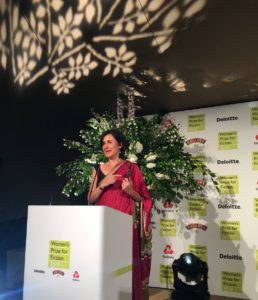On translations of the Bible, Diarmaid MacCulloch
[bwwpp_book sku=’97802412540040000000′] Professor of the History of the Church at Oxford University, Diarmaid MacCulloch’s latest book All Things Made New: Writings on the Reformation is a fascinating account of the Reformation, a period that was turbulent and very significant in the political history of England and formation of the Anglican Church. All Things Made New is packed with information. There are many aspects discussed but a truly fascinating one is that of the translation of the Bible being made available in vernacular languages in Europe — exemplifying the critical importance translations held centuries ago! By dwelling on Tyndale’s translation methodology MacCulloch provides insight in to a specialised skill that is a critical combination of a passion for the languages, writing talent, exceptional scholarship and patient dedication to the craft of making a text available in a different destination language. Reward mostly lies in the reception the newly translated text receives. Making important texts available in other local languages also ensures that the information travels across geo-political boundaries. The cross-pollination of ideas in this manner cements their transference across cultures and regions to disseminate discourses, probably bringing socio-political changes in its wake, in different nation states while giving an identity to the main idea enshrined in the text itself — in this case Christianity.
This is well illustrated in the following extract from the opening lines of the chapter on “The Bible before King James” which also mentions the Tyndale translation of the Bible, considered to be an influential text in the making of King James version (KJV) :
In the fifteenth century the official Church in England scored a notable success in destroying the uniquely English dissenting movement known as Lollardy. One of the results of this was that the Church banished the Bible in English; access to the Lollard Bible translation was in theory confined to those who could be trusted to read it without ill consequence – a handful of approved scholars and gentry. After that, England’s lack of provision for vernacular Bibles stood in stark contrast to their presence in the rest of Western Europe, which was quickly expanding, despite the disapproval of individual prelates, notably Pope Leo X. Between 1466 and 1522 there were twenty-two editions of the Bible in High or Low German; the Bible appeared in Italian in 1471, Dutch in 1492. In England, there simply remained the Vulgate, though thanks to printing that was readily available. One hundred and fifty-six complete Latin editions of the Bible had been published across Europe by 1520, and in a well-regulated part of the Western Church like England, it was likely that every priest with any pretence to education would have possessed one. …
The biblical scholarship of Desiderius Erasmus represented a dramatic break with any previous biblical in England: when he translated the Ne Testament afresh into Latin and published it in 1516, he went back to the original Greek. When he commented on scripture, his emphasis was on the early commentators in the first five Christian centuries ( with pride of place going to that most audacious among them, Origen); his work is notable for the absence of much reference to the great medieval commentators. This attitude was fully shared by William Tyndale, the creator of the first and greatest Tudor translation of the Bible, although Tyndale’s judicial murder at the hands of the Holy Roman Emperor, and indirectly Henry VIII, prevented his work reaching beyond the New Testament and the Pentateuch. Tyndale came from the remote West Country Forest of Dean on the borders of Wales, and it is not fanciful to see his fascination with translation as springing out of the market days of his childhood, listening to the mixed babble of Welsh and English around him. His is the ancestor of all Bibles in the English language, especially the version of 1611; Tyndale’s biographer David Daniell has bluntly pointed out that ‘Nine-tenths of the Authorised Version’s New Testament is Tyndale’s.”
There was no reason why this pioneer should have had the talent of an exceptional writer as well as being an exceptional scholar, but the Forest of Dean man was a gourmet of language; it pleased him to discover as he moved into translating the Old Testament that Hebrew and English were so much more compatible than Hebrew and Greek. He was an admirer of what Luther was achieving in Wittenberg in the 1520s, and visited the town during his years of exile at the end of that decade, but he was also his own man. When creating his New Testament translations, he drew generously on Luther’s own introductions to individual books, but as he came to translate the Pentateuch, the Books of the Law, his own estimate of their spiritual worth began to diverge from Luther’s strong contrast between the roles of law and gospel, and the plagiarism of Luther’s German ceased, to be replaced by his own thoughts.
Surreptitiously read and discussed during the 1520s and 1530s, Tyndale’s still incomplete Bible translation worked on the imagination of those whose so far had virtually no access to public evangelical preaching in England. …By the time of Tyndale’s martyrdom in 1536, perhaps 16,000 copies of his translation had passed into England, a country of no more than two and a half million people with, at that stage, a very poorly developed market for books. And this new presence of the vernacular Bible in Henry VIII’s England entwined itself in a complex fashion around the king’s own eccentric agenda for religious change in his realm, as the monarch, his leading churchmen and secular politicians all puzzled over the meaning of the king’s quarrel and break with the pope in Rome, which had begun in matters remote from the passionate theological claims of religious Reformers.
The popularity of Tyndale’s translation of the Bible at the time of the Tudors proved how important it was to communicate and be accessible in local languages as it was also used for political gains by Henry VIII. This exercise served the dual purpose of introducing the Anglican Church liturgy to the masses but also promoted the political intent of Henry VIII by viewing royal supremacy as the natural condition of the Church. The intimate symbiotic relationship between politics and culture is a universal truth that has not changed in all these centuries. Even now translations and books are viewed as the softest (also cost-effective) way of making inroads into new territories/cultures/regions, making it easier for foreign governments to piggyback upon the cultural impact for strengthening of political and economic bi-lateral ties via diplomatic channels.
Translating important texts is not a new idea. It is now being revived as evident in the translation movement of significant literary texts that is rapidly gaining traction in world literature today. Texts of all genres from different cultures are being rapidly exchanged and published mostly in English to ensure they travel faster worldwide. Increasing presence of world literature in global publishing is disruptive as illustrated by their significance being recognised by international prizes. For instance the merging of the Independent’s translation prize with that of the Man Booker International Fiction Prize to launch the prestigious The Man Booker International Prize which recognises “quality fiction in translation”. ( The longlist for 2018 ) Or for that matter the newly launched JCB Prize for Literature presented to a distinguished work of fiction by an Indian author. “It has a particular focus on translation, and hopes to introduce readers to many works of Indian literature written in languages other than their own.” The presence of a growing body of translations is bringing a change in literary discourses globally by being inclusive of diverse narratives.
Extra: Diarmaid MacCulloch’s 2012 Gifford Lectures on the “Silence in Christian History”. These lectures were later gathered in Silence: A Christian History . [bwwpp_book sku=’97801431258150000000′]
Diarmaid MacCulloch All Things Made New: Writings on the Reformation Allen Lane, an imprint of Penguin Random House UK, London, 2016, rpt 2017. Pb. pp. Rs 699
31 March 2018


